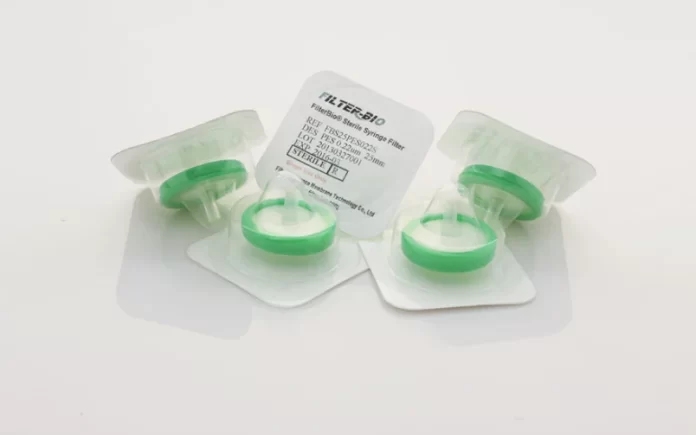Syringe filters are essential tools in laboratory settings, helping to remove impurities and ensure sample purity. However, choosing the wrong filter type can result in chemical reactions, contamination, and compromised sample integrity. Many researchers unknowingly select filters that are incompatible with their samples, leading to inaccurate results, wasted resources, and potential safety risks.
As part of Stellar Scientific’s Precision Filtration Campaign, this guide explores how improper syringe filter selection can affect laboratory outcomes. It provides expert insights on choosing the best syringe filter types for your specific applications.
Why Chemical Compatibility Matters in Syringe Filters
Not all syringe filters are created equal. The membrane material of a filter determines its chemical resistance and overall effectiveness. Using an incompatible filter can cause:
- Sample contamination – Unwanted particles from the filter may mix with the sample, affecting results.
- Membrane failure – A weakened filter can break down, allowing unfiltered particles to pass through.
- Loss of sample integrity – Chemical reactions between the sample and filter can alter the composition of the solution.
Selecting the correct filter ensures precision, safety, and efficiency in laboratory work.
The Dangers of Using the Wrong Syringe Filter
Chemical Reactions Can Alter Sample Composition
Certain chemicals degrade filter membranes, introducing contaminants into samples. Strong acids and bases can weaken cellulose acetate filters, while organic solvents like acetone or chloroform can damage nylon membranes. Understanding chemical compatibility is crucial to avoiding unexpected reactions that compromise experimental outcomes.
Sample Contamination Affects Accuracy
Syringe filters are designed to remove impurities, but selecting the wrong filter may introduce leachables or extractable that interfere with analytical measurements. A chemically resistant filter prevents unwanted substances from affecting sample purity.
Membrane Clogging Slows Down Filtration
Using a filter with an incorrect pore size or material can lead to clogging disrupting workflows. Particulate-heavy solutions require pre-filters or membranes with larger pore sizes to maintain efficiency.
Safety Risks in the Laboratory
Some solvents dissolve incompatible filter materials, leading to leaks, spills, or exposure to hazardous chemicals. Choosing the right filter prevents accidents and ensures the safe handling of aggressive compounds.
How to Choose the Right Syringe Filter
1. Identify the Chemical Composition of Your Sample
Before selecting a syringe filter, assess whether your sample contains aqueous or organic components, strong acids, or bases. Chemical properties determine which membrane type will perform best.
2. Select the Correct Membrane Material
Different syringe filter types cater to specific chemical compatibilities:
- PTFE (Polytetrafluoroethylene): Ideal for strong acids, aggressive solvents, and high-temperature applications.
- Nylon: Suitable for both aqueous and organic samples but incompatible with strong acids.
- PES (Polyethersulfone): Best for biological samples and aqueous solutions.
- PVDF (Polyvinylidene fluoride): Excellent for protein solutions and certain organic solvents.
- Cellulose Acetate: Works well for aqueous solutions but is not resistant to strong solvents.
3. Choose the Right Pore Size
- 2 µm: Best for sterilization and bacterial removal.
- 45 µm: Standard for general filtration and sample clarification.
- 0 µm – 5.0 µm: Suitable for pre-filtration of high-particulate solutions.
4. Match the Filter Diameter to Sample Volume
- 4 mm: For small-volume samples (<1 mL).
- 13 mm: Best for moderate volumes (1-10 mL).
- 25 mm: Ideal for larger samples (10-100 mL).
Conclusion
Using the wrong syringe filter can lead to contamination, chemical reactions, and inaccurate results. Choosing the correct membrane material, pore size, and filter diameter is essential for ensuring high-quality filtration and maintaining sample integrity.
Through Stellar Scientific, we offer high-performance syringe filters designed for various laboratory applications. Explore our range of filtration solutions to optimize accuracy, safety, and efficiency in your lab. Contact us today to find the right filter for your research needs.












